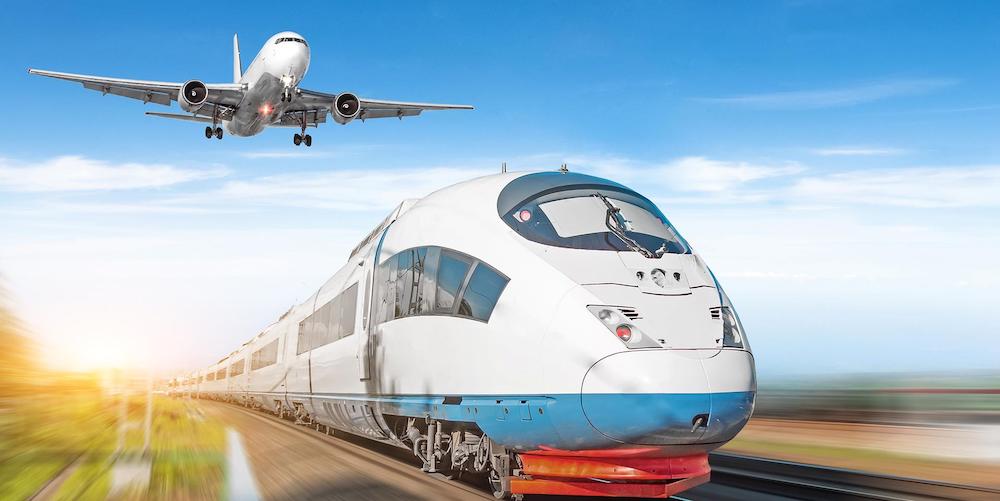Air travel used to be the favored form of going from Point A to Point B. Not any more it seems, and there are several reasons for the shift from planes to trains as the favored means of transport.
My Irish friend Claire just flew from Alicante to Dublin. On her return she said, “You can give me free tickets for a year and I won’t fly again. It was an absolute nightmare.” Parts of the nightmare were the lines in the airport that went around the block. During the pandemic, lots of staff were made redundant and have not been replaced. Luggage is piled up to the roof, or lost. Service quality is close to zero. Then there are delays of hours (her flight was delayed for three hours), strikes and near riots by disgruntled passengers.
No information, no announcements.
Granted, it isn’t possible to get from Spain to Ireland by train, but there are other means such as ferries. “I’d rather spend a day to travel home than going through this again,” Claire said. And that is just one example.
Cutting emissions is the mission
A much more important reason of course, is the pollution and carbon emissions that planes emit into the air, especially on short haul flights, a grave danger for the climate and environment.
Given the delays, security lines and waiting times with planes, train travel can even be faster.
Compared to trains, the emissions planes produce ,such as unburned hydrocarbons, are much higher. The European Union has ambitious plans to replace short haul flights with high speed trains across the continent. Night trains on international travel corridors are all the rage, selling out across Europe.
In many countries this future of travel has already become a reality, but there are still disconnects – literally – as there are just too few long-distance, border-crossing train options.
In June 2022 railway industry executives and policymakers met at the Connecting Days summit in Lyon, France to discuss their vision of doubling train travel by 2030, perhaps even triple it by 2050. As can be imagined, this is a gigantic task. It will take time and be very costly.
As these trains increasingly connect the countries of the European continent , there is also plenty of red tape to consider. However, Spain, France, Germany and the Netherlands have taken the first steps as far as high speed national train travel is concerned, with new train companies such as Iryo providing additional options while cutting the travel time.
Take for example the new rail service connecting Berlin-Munich, Paris-Lyon, Barcelona- Madrid or Milan-Rome to mention just a few. The new Berlin-to-Munich connection alone cuts the journey to four hours from six. Trains from Paris to Lyon are increasing in number and decreasing in ticket price.
Airlines changing with the times
This is just the train companies.
Airlines have also adapted to the new trend in train-versus plane by scrapping several flight routes across Europe. KLM, the French/Dutch carrier, has – as of 2020 – cancelled one of their daily flights Brussels-Amsterdam as part of their Fly Responsibly program.
In August, British Airways capped the sale of short haul flight tickets including Heathrow Airport outside London. Other airlines have either scrapped short haul flights or entered into collaboration programs with their national rail companies including Lufthansa and Deutsche Bahn, Austrian Airlines, easyjet, Air , Iberia and Vueling.
Another consideration that favors trains over planes by passengers is the fact, that very few airports are
located in city centers. They are often miles away, increasing travel time and costs often far over the flight ticket if it is a low-cost carrier.
I have experienced that myself, paying 50 euros for a taxi to Alicante airport (even more if at night or on a weekend) to catch a 45 euro flight to Amsterdam! Train stations, on the other hand, are frequent and at least one is in the city center.
Provided the plans to expand the high speed train routes across Europe go ahead, we are definitely
looking to a new future for travel, with trains playing an increasingly important role.
Inka Piegsa-Quischotte is an international attorney-turned-travel and lifestyle writer based in Spain. She has contributed to BBC/Travel, several in-flight magazines, TripSavvy (Spain) and TravelAwaits among many other publications.














